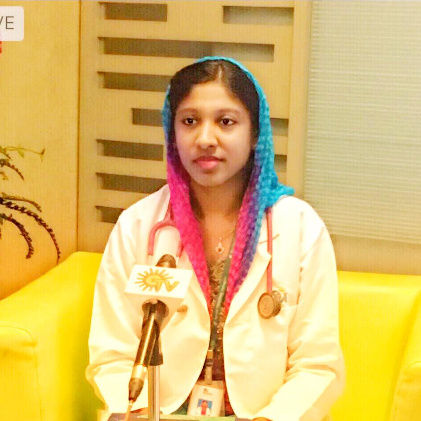Health Tests for Men and Preventive Care
Explore essential health tests for men and the importance of preventive care. Learn about recommended screenings by age, early detection benefits, and how to maintain long-term well-being through regular checkups and healthy lifestyle choices.

Written by Dr. Vasanthasree Nair
Reviewed by Dr. Shaik Abdul Kalam MD (Physician)
Last updated on 19th Aug, 2025

Introduction
Taking care of your health is one of the most important things you can do, and preventive care plays a big role in staying healthy. Many health issues can be avoided or managed better if detected early. For men, certain health tests and screenings are essential at different stages of life.
This article will guide you through the key health tests men should consider, why they matter, and how preventive care can help you live a longer, healthier life.
Why Preventive Health Tests Matter
Preventive health tests help detect potential health problems before symptoms appear. Many conditions, like high blood pressure, diabetes, and even certain cancers, may not show early signs but can be managed effectively if caught early.
Regular check-ups and screenings can:
Detect diseases early when they are easier to treat.
Prevent complications by managing risk factors.
Improve quality of life by keeping you active and healthy.
Essential Health Tests for Men
Staying on top of your health begins with knowing which tests are crucial at every stage of life. Here are the key screenings men should consider for early detection and disease prevention:
1. Blood Pressure Check
Why it’s important: High blood pressure (hypertension) can lead to heart disease, stroke, and kidney problems.
When to get tested: At least once every 2 years if your BP is normal (120/80 mmHg). If you have high BP, check more frequently.
2. Cholesterol Test (Lipid Profile)
Why it’s important: High cholesterol increases the risk of heart disease and stroke.
When to get tested:
Starting at age 20, every 4-6 years if normal.
More often if you have risk factors like obesity, diabetes, or a family history of heart disease.
3. Diabetes Screening (Blood Sugar Test)
Why it’s important: Early detection of diabetes can prevent complications like nerve damage, kidney disease, and vision problems.
When to get tested:
Starting at age 35, every 3 years.
Earlier if overweight or with risk factors like family history.
4. Prostate Cancer Screening (PSA Test)
Why it’s important: Prostate cancer is common in men, especially after 50. Early detection improves treatment success.
When to get tested:
Age 50+ for most men.
Age 45+ if at higher risk (family history, African-American men).
5. Colorectal Cancer Screening (Colonoscopy/FIT Test)
Why it’s important: Detects colon cancer early when treatment is most effective.
When to get tested:
Age 45+ for most men (earlier if family history).
Colonoscopy every 10 years or FIT test yearly.
6. Testicular Cancer Check
Why it’s important: Testicular cancer is most common in younger men (ages 15-35).
When to get tested:
Regular self-exams to check for lumps or changes.
See a doctor if you notice any abnormalities.
7. Heart Health Check (ECG, Stress Test)
Why it’s important: Detects heart disease risk, especially if you have symptoms like chest pain or shortness of breath.
When to get tested:
Age 40+, or earlier if you have risk factors (smoking, high BP, diabetes).
8. Bone Density Test (For Osteoporosis Risk)
Why it’s important: Men over 50 can develop weak bones, increasing fracture risk.
When to get tested:
Age 50+ if at risk (low testosterone, smoking, steroid use).
9. Eye and Dental Check-ups
Eye exam: Every 2 years (more often if diabetic or with vision problems).
Dental check-up: Every 6 months to prevent gum disease and oral cancer.
10. Hepatitis & HIV Screening
Why it’s important: Early detection of infections like Hepatitis B, C, and HIV improves treatment outcomes.
When to get tested:
At least once in adulthood, or more if at risk.
Get Your Health Assessed
Lifestyle Tips for Better Preventive Care
Along with regular health tests, a healthy lifestyle can significantly reduce your risk of diseases:
Eat a balanced diet – Include fruits, vegetables, whole grains, and lean proteins.
Exercise regularly – Aim for 150 minutes of moderate activity per week.
Maintain a healthy weight – Obesity increases diabetes and heart disease risk.
Quit smoking & limit alcohol – Smoking harms nearly every organ, and excessive drinking affects the liver and heart.
Manage stress – Practice meditation, yoga, or deep breathing to reduce stress.
Get enough sleep – 7-9 hours per night helps maintain overall health.
When to See a Doctor?
Even if you feel healthy, regular check-ups are important. However, see a doctor immediately if you experience:
Unexplained weight loss
Persistent fatigue
Chest pain or shortness of breath
Unusual lumps or pain
Changes in urination or bowel habits
Conclusion
By staying proactive with your health, you can prevent many diseases and enjoy a better quality of life. Remember, prevention is always better than cure!
Consult a Top General Physician for the best advice
Consult a Top General Physician for the best advice

Dr. Swathi Reddy Perugu
General Physician/ Internal Medicine Specialist
7 Years • MBBS, MD (General Medicine)
Hyderabad
Health plus, Hyderabad

Dr. Rajib Ghose
General Practitioner
25 Years • MBBS
East Midnapore
VIVEKANANDA SEBA SADAN, East Midnapore

Dr. Hari Krishna
General Physician/ Internal Medicine Specialist
13 Years • MD (Gen. Med. )
Chennai
Apollo Hospitals Greams Road, Chennai
(50+ Patients)

Dr Vinay Kumar A V
Nephrologist
8 Years • MBBS, MD - General Medicine, DM - Nephrology
Bilaspur
Apollo Hospitals Seepat Road, Bilaspur

Dr. Afreen Banu Khan
General Physician/ Internal Medicine Specialist
8 Years • MBBS, DDM (Diab). FCC (Cardio)
Chennai
Apollo Speciality Hospitals OMR, Chennai







